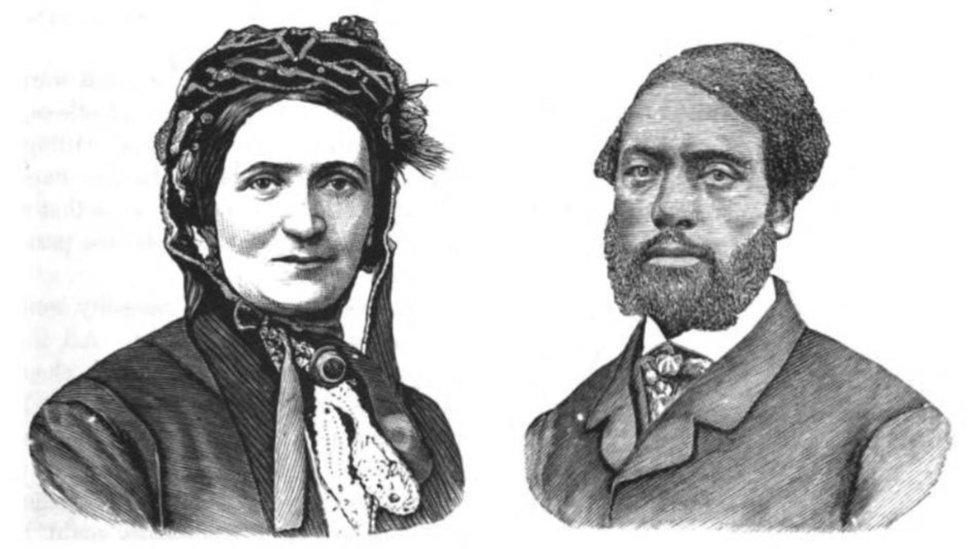Plaque to Aycliffe Angels WWII factory women unveiled
- Published
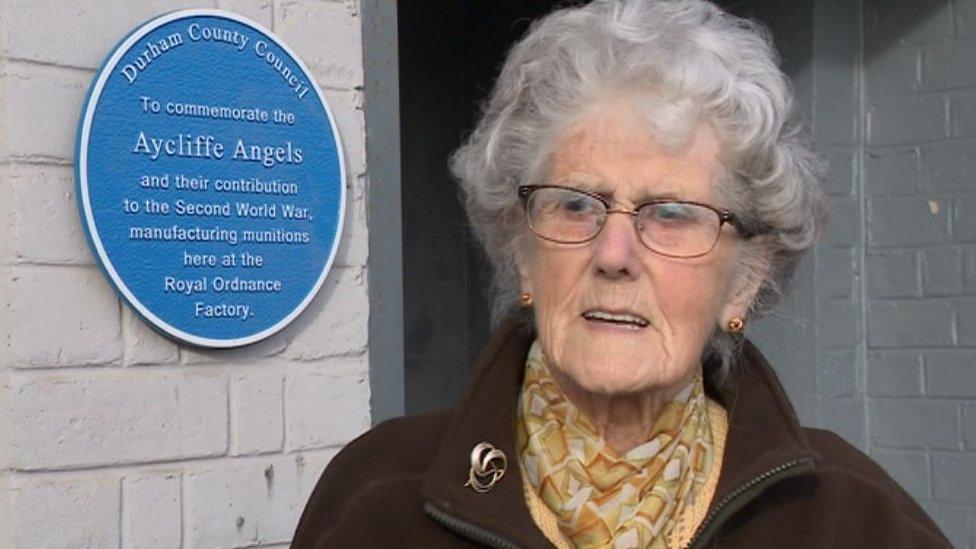
Aycliffe Angel Muriel Scott unveiled the plaque dedicated to her and her wartime colleagues
A blue plaque commemorating women who worked in a World War Two munitions factory has been unveiled.
The women were known as the Aycliffe Angels due to their work at the factory in Newton Aycliffe, County Durham.
The plaque was unveiled on the former Royal Ordnance Factory building, now an activity centre, by 100-year-old angel Muriel Scott.
More than 17,000 women worked at the factory, and Ms Scott said many were injured in the process.
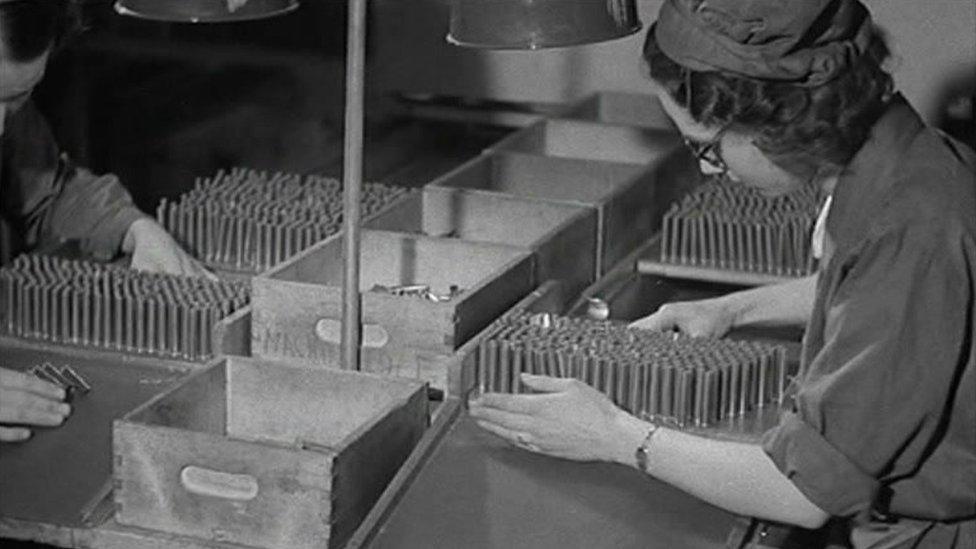
The Aycliffe Angels made munitions in Newton Aycliffe
Ms Scott said her job involved examining detonators which was done with just one hand in case the device exploded.
"One girl had lost her eyes, another had lost her hand and fingers," she said.
The plaque was installed by Durham County Council after a nomination by the Durham Women's Banner Group.
Laura Daly from the banner group said the work done by the Aycliffe Angels was "secretive" and "dangerous".
She said the workers were a "shining beacon" of women who have "done important things", adding: "There were so many of them that really shouldn't be forgotten."
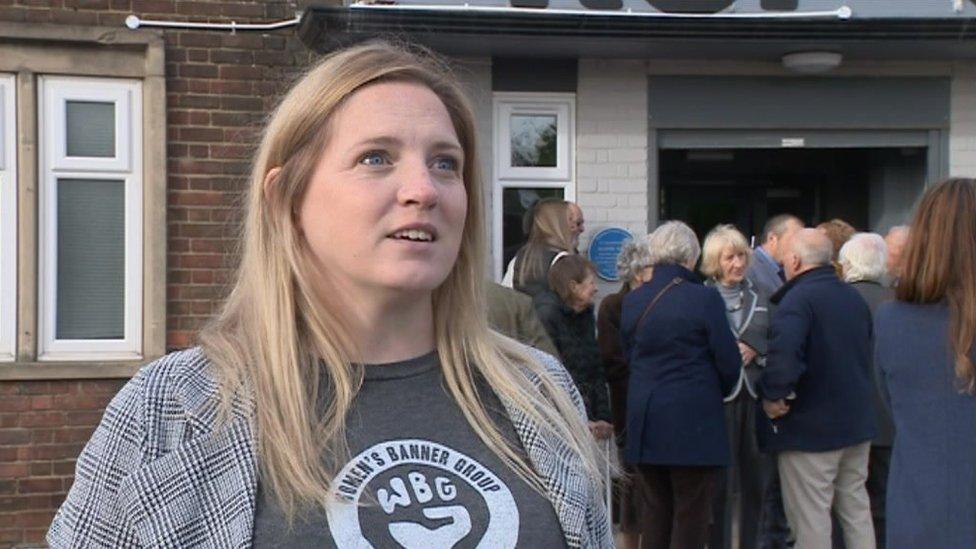
Laura Daly said the Aycliffe Angels were a "shining beacon" of female achievement
Alison Clark from the council said: "Women's stories are those which are less told.
"Our blue plaque scheme is about making sure those stories are told and we see them on our buildings."
Plaques were also installed at the childhood home of World War One nurse Kate Maxey in Spennymoor and the Beamish home of Baron and Lady Lawson, the latter of whom was a pioneer of child welfare clinics.

Follow BBC North East & Cumbria on Twitter, external, Facebook, external and Instagram, external. Send your story ideas to northeastandcumbria@bbc.co.uk, external
- Published19 October 2021
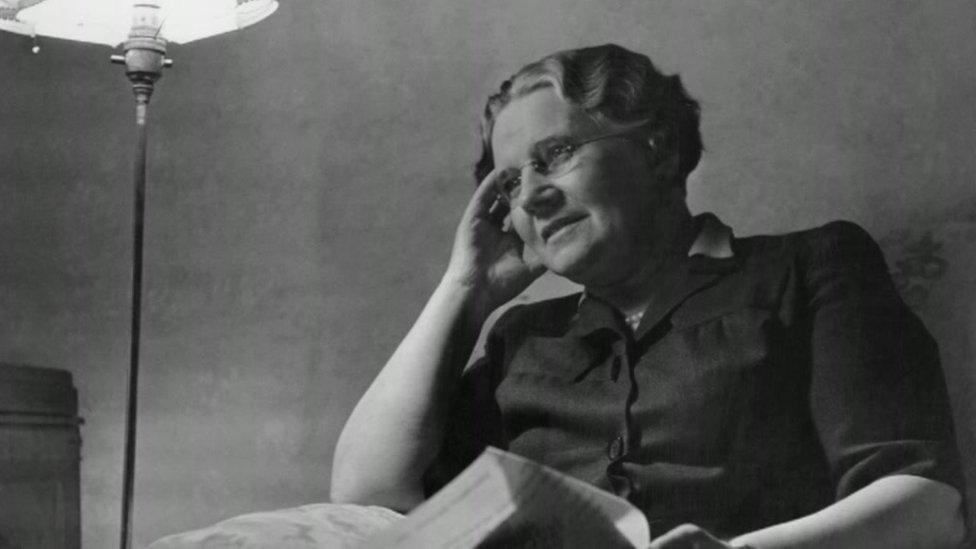
- Published1 October 2021
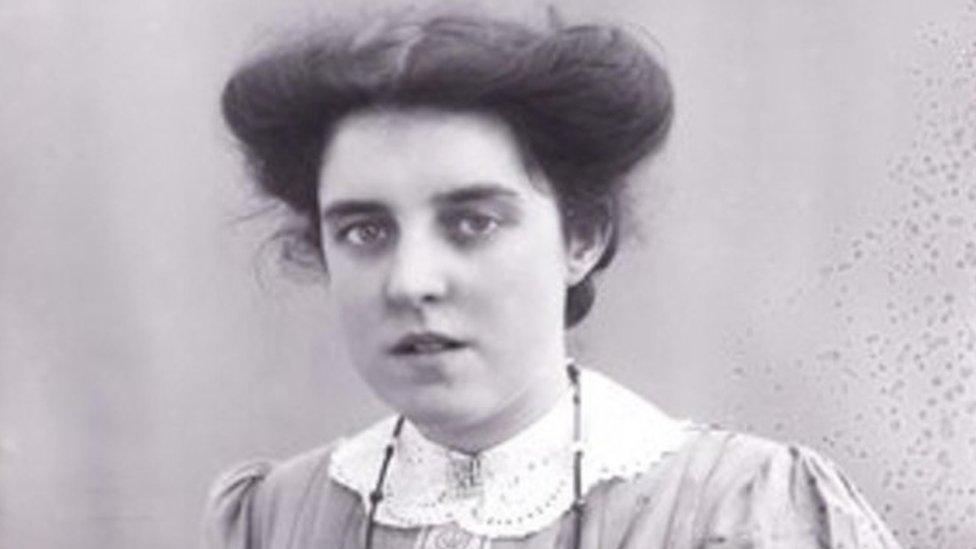
- Published5 October 2021
